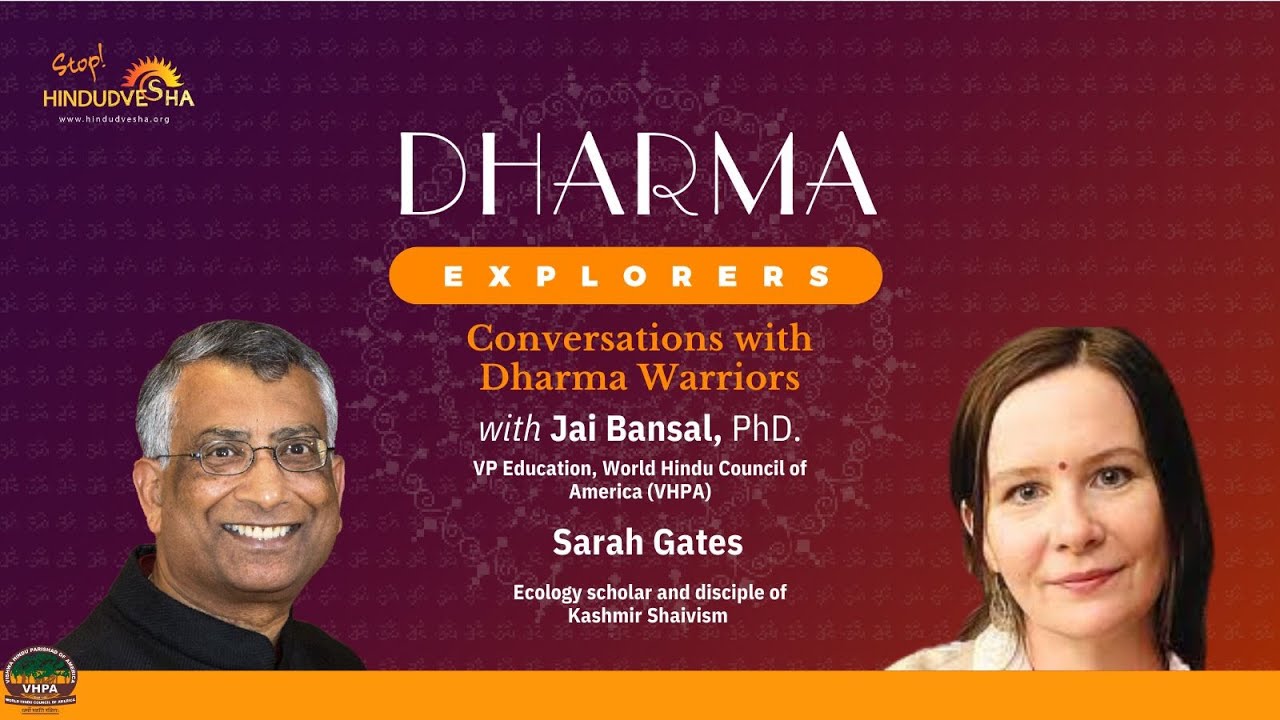

What is Hindutva and How Diaspora Experience it
What is Hindutva and How Diaspora Experience it
The session on Hindutva aimed to clear misconceptions and provide a deep understanding of the term. It discussed the origins, evolution, and contemporary significance of Hindutva, especially for those living outside India. The speakers were Dr. Shreerang Godbole, an endocrinologist and author, and Sri Saumitra Gokhale, the global coordinator for the Hindu Swayamsevak Sangh, an organization promoting Hindu values for global unity and peace.
Dr. Godbole began by tracing the history of the term Hindutva. It was first used by Sri Chandranath Basu in 1892 in his book “Hindutwa: Hindur Prokrito Itihas.” Basu’s work advocated for Advaita Vedanta philosophy and emphasized the spiritual consciousness unique to Hindus. However, the movement of Hindu revivalism had already started earlier in Bengal with figures like Sri Rishi Rajnarayan Basu, who influenced many through his thoughts on Hindu nationalism and the superiority of Hinduism. His ideas inspired notable personalities such as Yogi Aurobindo, Swami Dayanand, and Bankim Chandra.
Dr. Godbole highlighted that the next significant attempt to define Hindutva was by Lokmanya Sri BalaGangadhar Tilak between 1900 and 1915. Tilak described a Hindu as someone who believes in the infallibility of the Vedas and follows the norms laid down in the Shastras. This definition, however, appears constrained today as many Hindus do not adhere strictly to the Sanatana Dharma lifestyle, and it excludes other faiths like Buddhism, Jainism, and Sikhism, which originated from Hinduism.
Dr. Godbole also mentioned Ganesh Damodar Savarkar and Guruji M.S. Golwalkar but focused mainly on Veer Savarkar’s contributions. Savarkar’s book “Hindutva,” published in 1923, remains a cornerstone of the Hindutva movement. Savarkar distinguished between the terms Hindu and Hindutva, defining Hindu Dharma as a system encompassing all traditions, faiths, and sects that consider India their fatherland and holy land. Hindutva, according to Savarkar, goes beyond religious aspects to include linguistic, cultural, social, and political dimensions. He defined Hindutva as “Hindu-ness” or the essence of being a Hindu, with criteria including one’s origin from Hindustan and considering it as their holy land. Savarkar’s definition even extended to Hindus living outside India, emphasizing that the geographical limits of Hindutva are the limits of the Earth. T
Saumitra Gokhale ji, in his speech, pointed out that while defining Hindus and Hindutva was necessary in the colonial context of the 19th century, these concepts had existed and evolved over millennia. He argued that defining Hindutva is not about drawing borders but about recognizing a universal philosophy transcending identity.
Saumitra ji explained that Hindus, regardless of their location, consider India their holy and motherland. The diaspora follows Indian traditions, festivals, and cultural norms, aligning with Savarkar’s definition. Gokhale emphasized the shared culture among Hindus, Jains, Buddhists, and Sikhs, rooted in values like the quest for ultimate truth, liberation, and the distinction between material and spiritual pursuits. These commonalities were nurtured by Hindutva over time, creating a pluralistic and accepting culture.
He cited Professor Dharam Bhawuk’s theory that cultures valuing certain things produce geniuses in those areas, explaining the spiritual brilliance of Hindu culture. Hindutva, he said, embraces various paths and interpretations of truth, allowing for a broad acceptance of noble thoughts and sincere efforts. This philosophy encourages living by one’s values while respecting others’ paths.
Saumitra ji highlighted Hindutva’s trait of seeing divinity in everything and its focus on societal welfare, embodied in the concepts of SatChitAnanda—truth, elevation of mind, and beauty. Hindutva also promotes introspection and reform, adapting to societal changes while maintaining core values. Its universality has been proven through historical and contemporary examples, such as resistance to conversions in Sri Lanka, rebuilding temples in Trinidad and Tobago, fighting discrimination in Malaysia, and standing against apartheid in South Africa.
In conclusion, the session underscored that Hindutva is not just a religious identity but a comprehensive cultural, social, and political philosophy. It unites Hindus globally through shared values and traditions, emphasizing a holistic view of the greater good and a commitment to living according to this consciousness.
- This event has passed.
Details
- Date:
- October 16, 2021
- Time:
- 12:00 pm - 2:00 pm EDT
- Event Category:
- Virtual
World Hindu Council of America
- 200 New Bond St.
- Sugar Grove, IL 60554-9171
- Nonprofit 501 (c)(3) | Tax ID 51-0156325



